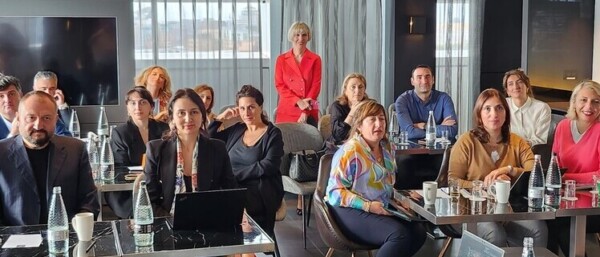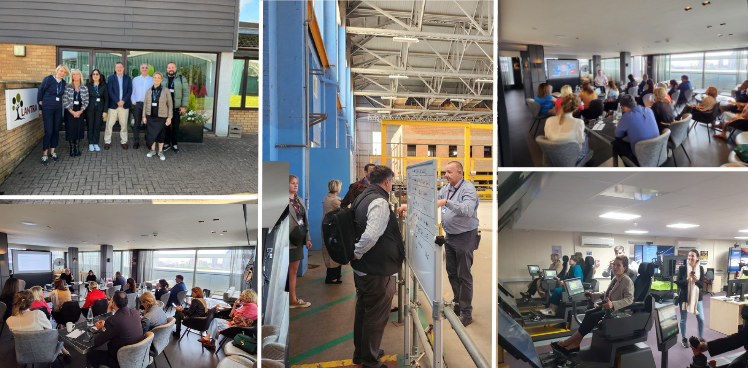
Georgia’s sector skills organisations empowered with knowledge and best practice from UK
One of the most commonly posed questions in the debates around skills development is how to effectively engage employers in the process. Sectoral approaches are increasingly seen as an effective solution to bring key stakeholders together to collaboratively develop skills solutions.
Whilst many nations have established sector skills bodies to foster industry engagement at the sector level, in Georgia sector skills organisations (SSOs) represent a relatively new institutional mechanism within the vocational education and training system.
Currently in their registration stage, the prospective SSOs in Georgia are required to provide compelling evidence of its representativeness, well-defined business processes and structure, as well as to articulate a long-term vision for industry development and present a comprehensive strategy accompanied by an action plan with measurable evaluation indicators. These principles aim to support the formation of strong and successful sectoral skills organisations capable of driving positive change and sustainable skill development within their respective industries.
To empower SSOs with the knowledge, skills and insights to operate proficiently, representatives from Georgia’s SSOs for construction, wine (agriculture), transport and logistics and tourism industries accompanied Geogia’s Skills Agency, Ministry of Education and the Georgian Chamber of Commerce & Industry to join a delegation to the UK facilitated by People 1st International.
Funded through GIZs Private Sector Development and Vocational Education and Training in the South Caucasus project and SEQUA, the trip followed a series of workshops that were delivered in Georgia to share and discuss the key principles of SSO functions.
The study visit demonstrated how SSOs contribute to the development of a strong and qualified workforce and provided insights into the organisational structure, governance models, strategic planning, and day-to-day functioning of successful SSOs. The trip included meetings with:
- New City College – a leading vocational college in London for a tour of the hospitality and construction facilities
- UK Department for Business and Trade to understand the structure of the UK skills system, approaches, employer involvement and impact.
- Institute for Apprenticeships and Technical Education (IfATE) to learn about how they work with employers to develop occupational standards, apprenticeships, and technical qualifications.
- Sector skills councils (SSCs) including Skills for Logistics, LANTRA and Workforce Development Trust (parent company of Skills for Health, Skills for Justice, and People 1st International) to hear from each SSCs about their strategy, approach, evolution and impact.
- Construction college at Bircham Newton CITB to learn about their approach to supporting the construction sector, how they levy companies in the sector and redistributed the levy in grants, funds and subsidies for training the workforce to the standards that are set.
Participants were immersed in practical operations and exposed to established sector skills councils in the UK. Through firsthand observation and engagement, representatives gained invaluable knowledge and experience regarding organisational dynamics, governance models, and strategic planning approaches employed by successful SSCs. This practical learning experience equipped the participants with the requisite knowledge to establish robust frameworks, define effective operational structures, and streamline their organisational processes to ensure a seamless integration into the skills development processes.
Through discussions and site visits, representatives engaged in knowledge sharing and exploring of best practices in areas such as the development of qualifications and the involvement of the private sector in VET system.
As they return to Georgia with a wealth of newfound knowledge and insight, the group will now be embarking on their journey to develop their plans and operationalise their respective sector skills organisations. Through continued funding from SEQUA our support to the SSOs will continue as we visit them later this month in Tbilisi.




